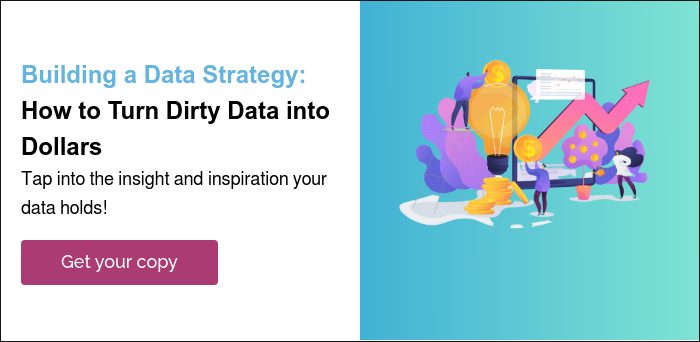Enterprise Resource Planning (ERP) systems can be transformative for any organization by enhancing organizational effectiveness and enabling data-driven decision-making. ERP systems are a powerful tool for integrating various business functions and managing critical processes within an organization.
But limitations around data management means that organizations often need to look outside of their ERP to better harness their data. That’s where a data platform comes in. This blog post will explore how a data platform complements an ERP system so you can extract more value from your data.
ERP Limitations to Consider
One limitation of ERP systems is their focus on transactional data. ERP systems primarily capture, and process operational data related to day-to-day activities such as sales, finance, procurement, and production. However, they may not provide comprehensive support for capturing and analyzing non-transactional data, such as customer feedback, social media data, or market trends. This limitation restricts the ability to leverage a wider range of data sources for advanced analytics and decision-making.
Another restriction ERP systems bring is around customization. Customizing an ERP to your businesses unique requirements is a given. ERP customization takes a lot of time and money and can make post-implementation upgrades more complex.
Some ERPs offer a limited form of 'warehouse', but this is primarily for their own data and offer limited processing and transformation capabilities for data ingested from other sources. ERP warehouses should not be confused with specialist data platforms.
Don’t misunderstand, ERP systems are a worthwhile investment. But there are limitations and use cases that arise where a platform outside of the ERP is needed.
What is a data platform?
A data platform is the hub that brings all your data together in one place. It ingests, analyzes, models, and visualizes data so it can be applied to specific objectives and business goals. Essentially with a data platform you are putting your data to work. You have a specific business objective you are trying to achieve, fast.
A data platform is fully customized to your specific business requirements and desired outcomes. ProArch’s Dataware takes an 'opiniated’ view of the Microsoft Azure architecture rather than the traditional approach of a highly bespoke customized design and build. This enables deployment of a full data platform solution within days. After which it can be customized according to any unique needs or requirements. This way of operating drastically reduces the time deliver value.
Benefits of a Data Platform
With a data platform like ProArch’s you can:
- Bring together, clean, and transform any type of data from any source into one platform.
- Make data-driven decisions based on holistic trends.
- Eliminate the human error with reliable automated processes.
- Visualize and track KPIs organization-wide.
- Power Artificial Intelligence based applications.
- Make the most of your Azure investment.
How a data platform complements an ERP
A data platform complements an ERP by performing complex functions that directly impact the business, processes, and customers. Think about all the different types and places your organization is collecting and producing data every single day. Some of that data an ERP system can handle, but not always.
Let’s say you are a construction company, and your customer invoicing and employee payroll processes are slow, manual, and require a team of FTEs. The information the team needs to perform these processes is spread across Excel spreadsheets, HR systems, and the ERP. A data platform could be utilized to collect the data from all sources, perform the calculations, and feed the data back to the ERP in a consistent format. The result is faster payroll processing which means faster time to invoice. That’s a win-win for you, your people, and your customers.
Some situations where a data platform would complement or be used in place of an ERP are:
- More reporting power to reveal trends and patterns to generate actionable insights.
- Data from separate sources need to be combined.
- Creating specialized application or customer portals.
- Interpret large datasets.
With a data platform, your organization gains a powerful engine that organizes, manages, and unleashes the full potential of your data, allowing you to gain insights, make informed decisions, and enhance your business operations.
Organizations rely on ProArch's Data Platform, Dataware, to visualize their data, maximize its value, and make decisions that improve efficiency and drive growth. With deployment completed in under two weeks, you can focus on harnessing your data to its full potential to reveal new opportunities.

Director of Marketing Rebecca leads ProArch's marketing efforts, seamlessly blending technology and storytelling to assist clients in their buying journey. She is dedicated to presenting technological solutions in a compelling manner that drives significant growth for the company. Collaborating closely with sales, engineering, leadership, and HR teams, Rebecca sets the strategic vision for ProArch and ensures alignment across the organization. Her strategic, visionary, and detail-oriented approach shapes ProArch’s brand to be synonymous with reimagining technology to achieve business objectives.


